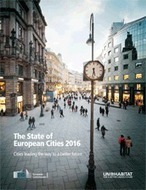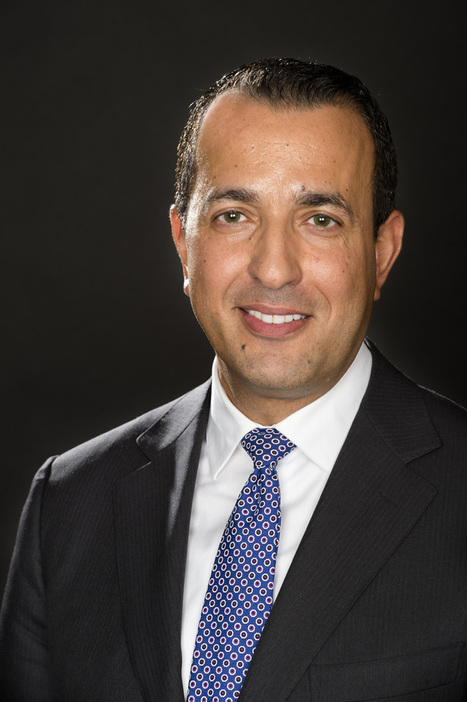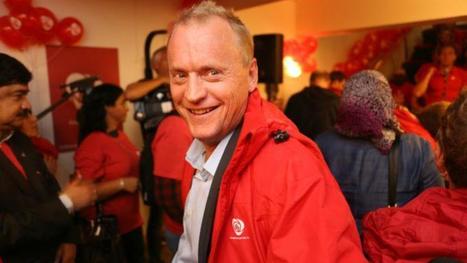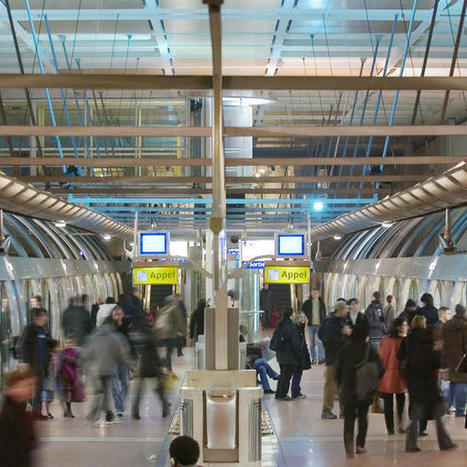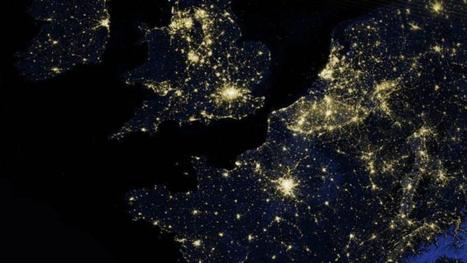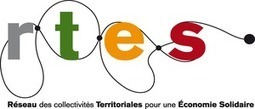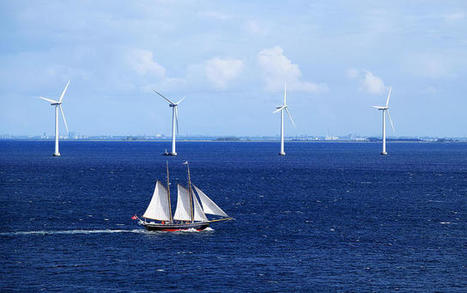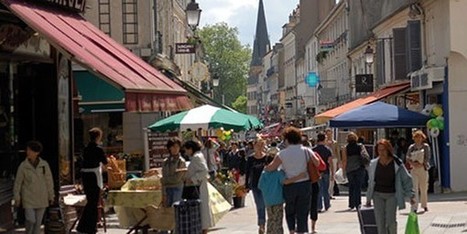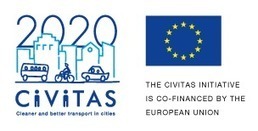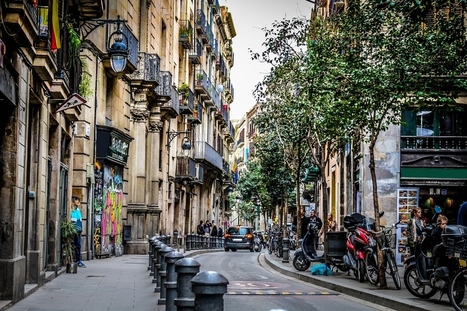From 2000 to 2014, the energy infrastructure of the city of Hamburg was mainly in the hands of private energy monopolies such as Vattenfall and E.On that controlled most of Germany's electric power infrastructure. These companies had a strong interest in utilizing their coal and nuclear power plants as long as possible, thereby obstructing a shift to renewable energy. Moreover, they were reluctant to provide equal access to small power providers and invest in a smart grid that allows more effective management of variable, distributed power inputs.
Follow, research and publish the best content
Get Started for FREE
Sign up with Facebook Sign up with X
I don't have a Facebook or a X account
Already have an account: Login

Energy Transition in Europe | www.energy-cities.eu
6.8K views |
+0 today
 Your new post is loading... Your new post is loading...
Current selected tag: 'European cities'. Clear
Cities, leading the way to a better future
The German city is working to shake off the coal dust of the industrial Ruhr, but will green tourism be profitable enough to regain its former economic strength?
Le vélo dans les villes européennes : mentalités, pratiques et politiques urbaines - MétropolitiquesContribuer au débat international sur une ville sûre, saine et attractive – tel est l'enjeu de Cycling Cities, une historiographie comparative qui
Cities are uniquely positioned to move Europe towards a circular economy that will bring benefits both now and into the future.
The city of Oslo surprised observers last year by announcing plans to introduce a “carbon budget” with the objective of halving its global warming emissions by 2020 and becoming carbon neutral by 2030. The city’s Mayor, Raymond Johansen, told EURACTIV.com how he intends to achieve this ambitious objective.
Les déplacements sont au cœur des dynamiques du Grand Paris. Véritable levier pour l’attractivité et l’emploi du territoire, la mobilité constitue un axe structurant pour construire la métropole de demain.
As the energy market is being shaken up by the arrival of new local players, one crucial objective should be to guarantee diversity in the governance representation, write Claire Roumet, Executive Director of Energy Cities, and Dirk Vansintjan, Executive Director of RESCoop.eu, the European Federation of Renewable Energy Cooperatives.
How did Pontevedra transform its city from a "car warehouse" to a pedestrian haven? By "inverting the pyramid" on who rules the road-- putting peopl
Επαναπροσδιορίζοντας την πόλη: Στρατηγική Ανθεκτικότητας για την Αθήνα του 2030 Η «Στρατηγική Ανθεκτικότητας της Αθήνας» στοχεύει στην δημιουργία μια πόλης που είναι Προσιτή, Πράσινη, Προνοητική και Ζωντανή μέσα από 65 δράσεις και 53 υπο-δράσεις. Μάθετε περισσότερα εδώ. Βρείτε την αγγλική εκδοχή της Στρατηγικής Ανθεκτικότητας της Αθήνας εδώ. Μέσα σε ένα χρόνο, το Γραφείο Ανθεκτικότητας και…
There is a growing trend to involve citizens in city development to make urban areas more sustainable and livable. The urban living labs approach offers a…
Space under train station in Utrecht, where 40% of visitors arrive on two wheels, will eventually have room for 12,500 bikes
From
rtes
Après les Etats généraux de l’économie circulaire de 2015, Paris s’est doté le 3 juillet dernier, de son plan "économie circulaire" et d’une première feuille de route 2017-2020 : une première pour une ville française. |
The establishment of a carbon-neutral energy system requires massive investments in infrastructure such as wind turbines. Because distributed energy systems do not fit the business models of the old energy utilities, they continue to invest far too little in this sector. Meanwhile, many individual electric power consumers are interested in investing in renewable power infrastructure, but these investments are too large and require a level of expertise too advanced for individual households to be able to support them. How can consumers take matters into their own hands?
ALDA and the city of Sceaux (France) are partnering in the framework of the European project Co-Created, aimed at promoting citizens participation in the co-creation of local policies.
This new tool - Moblity as a Service (MaaS) Readiness Level Indicators for local authorities – offers a new approach to understand how local authorities can speed up the process of MaaS in their local context. It can be used as a discussion tool and a check list to develop measures in the local authorities. The tool has been developed as part of the CIVITAS ECCENTRIC project and was launched at the CIVITAS Forum 2017 in Torres Vedras. Find out more in the document below.
GUST project results in Urban Living Labs Handbook and Massive Open Online Course | JPI Urban EuropeThe GUST project from JPI Urban Europe’s Second Pilot Call exemplifies dissemination and implementation of the project results. GUST stands for ‘Governance…
FIGARO DEMAIN - Afin d'accélérer la transition énergétique, des Occitans lancent une coopérative pour créer de l'énergie propre. La métropole ainsi..
Innovative city planning is a key part of the solution to create a more sustainable form of urban living – and Madrid and Barcelona are leading the crowd.
‘The city’s parking spaces will become bike or scooter paths, café terraces or playgrounds’
The city of Peterborough won the 2015 SCEWC awards in the City category thanks to its work on DNA Circular Economy. Cecile Faraud explains the key points of the circular economy and how it affects not only the economy of the city, but also its policies and behaviors.
Le maire écologiste de Grenoble se trouvait à Liège, en fin de semaine dernière. À la tête de la cité iséroise depuis 2014, Éric Piolle fait figure de précurseur en matière d’écologie politique à l’échelon municipal. Nous l’avons rencontré à la Cité Miroir.
public tensions have been rising over what should, on the surface, appear to be a non-controversial and publicly beneficial EU funded investment project: a proposed EUR 100 million tram line in the capital Riga.
Analysis from the Centre for Cities thinktank finds urban areas are likely be hit hardest by the increased trade barriers under both hard and soft Brexits |





